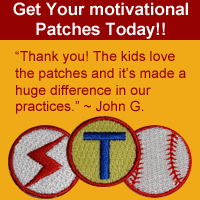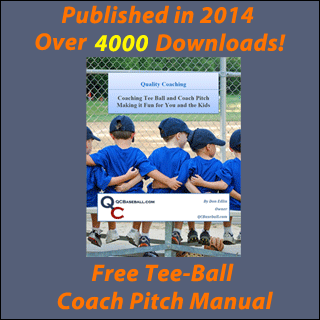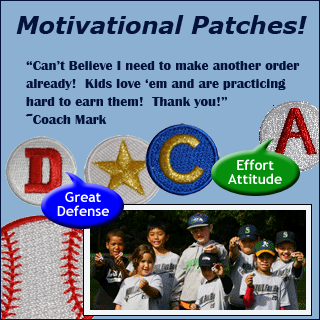Baseball Appeals
Question From a Volunteer Umpire
I received this email from an umpire that had a situation about the appeal process come up during a game. The following is the email question:
"I'm a volunteer in a little league origination as a umpire & had a situation come up where the umpire call a kid safe at second base (not a force out) the kid was clearly out. The manager called time went out and asked the umpire if he would ask the other umpires for help in his call, he said sure and myself, home plate ump and the 2nd base ump met and all agreed that he missed the call so home plate ump overturned it. The other manager came on field with rule book showing that; that is a judgment call and can not be appealed. Can you please clarify?"
First I'll go over my reply and then list out some rules about the appeal process.
In this particular situation, there was no official appeal. The opposing coach was correct that an appeal cannot be made on a judgement call by the umpire. Below is listed when an appeal can be made. The fact that the coach asked the umpire if he would ask the other umpire is fine. The umpire can then do that to make sure they made the right call or if the call was missed. The important part here is that the umpire can say no to that request as this is not a play that can be appealed. So when the opposing coach brought out the rule book he wasn't aware that the other manager was not making an appeal and that it is up to the umpire whether he wants to discuss this with other umpires. So the umpire in this situation can clearly state that a judment call is not something that can be appealed; the other coach didn't make an official appeal; and it's up to the umpires discretion whether he wants to talk about it with the other umpires.
An important point is that the umpire that made the call is the only one who can descide to change it. So if the homeplate umpire didn't make the call and he and the field umpire disagree and the field umpire wants the call to stand then it will stand. He can't be overruled by another umpire.
Another important point is that judgement call can not be grounds for a manager to protest a game.
Rules That Apply to the Appeal Process
9.02 (a)
"Any umpire's decision which involves judgment, such as, but not limited to,whether a batted ball is fair or foul, whether a pitch is a strike or a ball, or whether a runner is safe or out, is final. No player, manager, coach or substitute shall object to any such judgment decisions."
Even through it says that a manager can't object to the call. It doesn't mean that he can't ask the umpire to talk to another umpire for help. The manager should ask the umpire who made the call. The umpire can deny that request and the play will stand as called.
9.02 (b)
"If there is reasonable doubt that any umpire's decision may be in conflict with the rules, the manager may appeal the decision and ask that a correct ruling be made. Such appeal shall be made only to the umpire who made the protested decision"
What Can Be Appealed
A manager can only appeal a call that involves the incorrect interpertation of the rules.
Examples:
Batter hitting out of turn.
Awarding an incorrect number of bases when a ball goes out of play.
Not returning a runner or runners to their base(s) after a dead ball situation. For example a foul ball where a runner advances and then doesn't go back to the previous base.
On a fly ball either leaving early before the catch is made or not retouching the base after the ball is caught if the runner was off the base.
Missing a base on the way to the next base. A player cannot go back to retouch the base if the ball is dead.
9.02 (c)
If a decision is appealed, the umpire making the decision may ask another umpire for information before making a final decision. No umpire shall criticize, seek to reverse or interfere with another umpire's decision unless asked to do so by the
umpire making it. If the umpires consult after a play and change a call that had been made, then they have the authority to take all steps that they may deem necessary, in their discretion, to eliminate the results and consequences of the earlier call that they
are reversing, including placing runners where they think those runners would have been after the play, had the ultimate call been made as the initial call, disregarding interference or obstruction that may have occurred on the play; failures of runners to
tag up based upon the initial call on the field; runners passing other runners or miss-ing bases; etc., all in the discretion of the umpires. No player, manager or coach shall be permitted to argue the exercise of the umpires' discretion in resolving the
play and any person so arguing shall be subject to ejection.
7.10
Any runner shall be called out, on appeal, when:
(a) After a fly ball is caught, he fails to retouch his original base before he or his orig-
inal base is tagged;
Rule 7.10(a) Comment: "Retouch," in this rule, means to tag up and start from a contact with
the base after the ball is caught. A runner is not permitted to take a flying start from a position in back
of his base.
(b) With the ball in play, while advancing or returning to a base, he fails to touch each
base in order before he, or a missed base, is tagged.
APPROVED RULING: (1) No runner may return to touch a missed base after a
following runner has scored. (2) When the ball is dead, no runner may return to
touch a missed base or one he has left after he has advanced to and touched a base
beyond the missed base.
Rule 7.10(b) Comment: PLAY. (a) Batter hits ball out of park or ground rule double and
misses first base (ball is dead)—he may return to first base to correct his mistake before he touches
second but if he touches second he may not return to first and if defensive team appeals he is declared
out at first.
PLAY. (b) Batter hits ball to shortstop who throws wild into stand (ball is dead)—batter-run-
ner misses first base but is awarded second base on the overthrow. Even though the umpire has
awarded the runner second base on the overthrow, the runner must touch first base before he proceeds
to second base.
These are appeal plays.
How to Appeal a Call
Appeals can only be made when the ball is in play and the action has stopped. This means that after the play has stopped, if the umpire hasn't called "Time", then the defensive team can appeal while the ball is live. This doesn't require the ball to be thrown to the pitcher and waiting for the umpire to call "Play". Normally the appeal is made after time is called by the umpire or the manager so you might want to follow this procedure as it is a more standard way to appeal and volunteer umpires may not understand an appeal while the ball is in the hands of a position player and the ball is live.
If the umpire has called time and an appeal hasn't been made, then the ball is dead. Before an appeal can be made the umpire must call play. This won't happen until the pitcher is on the mound with the ball in his hand. The pitcher or any other player and then appeal the call. Since most appeals apply to base runners, the pitcher will then step back of the mound and throw the ball to the missed base for example and the umpire will make the call.
One appeal can be made on each runner at each base if there were multiple infractions.
The defense loses the ability to appeal if:
- The throw made for the appeal goes out of the field of play.
- A balk occurs before or during the appeal.
- A pitch is made to the batter.
- A play is made after the action has stopped. So for example if the pitcher tries to pick off a runner rather than throw to a base for an appeal.
5.11
After the ball is dead, play shall be resumed when the pitcher takes his place on the
pitcher's plate with a new ball or the same ball in his possession and the plate umpire calls
"Play." The plate umpire shall call "Play" as soon as the pitcher takes his place on his
plate with the ball in his possession.
Most Recent Blog Posts
Working With Players on Focusing on the Correct Part of the Baseball when Hitting (October 15 2016)
Getting More Accurate Throws From Your Team (April 5 2016)
Don Just wanted to say Thank you for the Motivational Patches. This was a GREAT Coaching Tool! We just won the City Championship Game. My Boys sure did work hard for those patches and earned the right to be called CITY CHAMPIONS.
Thanks,
- Coach Brian F.







